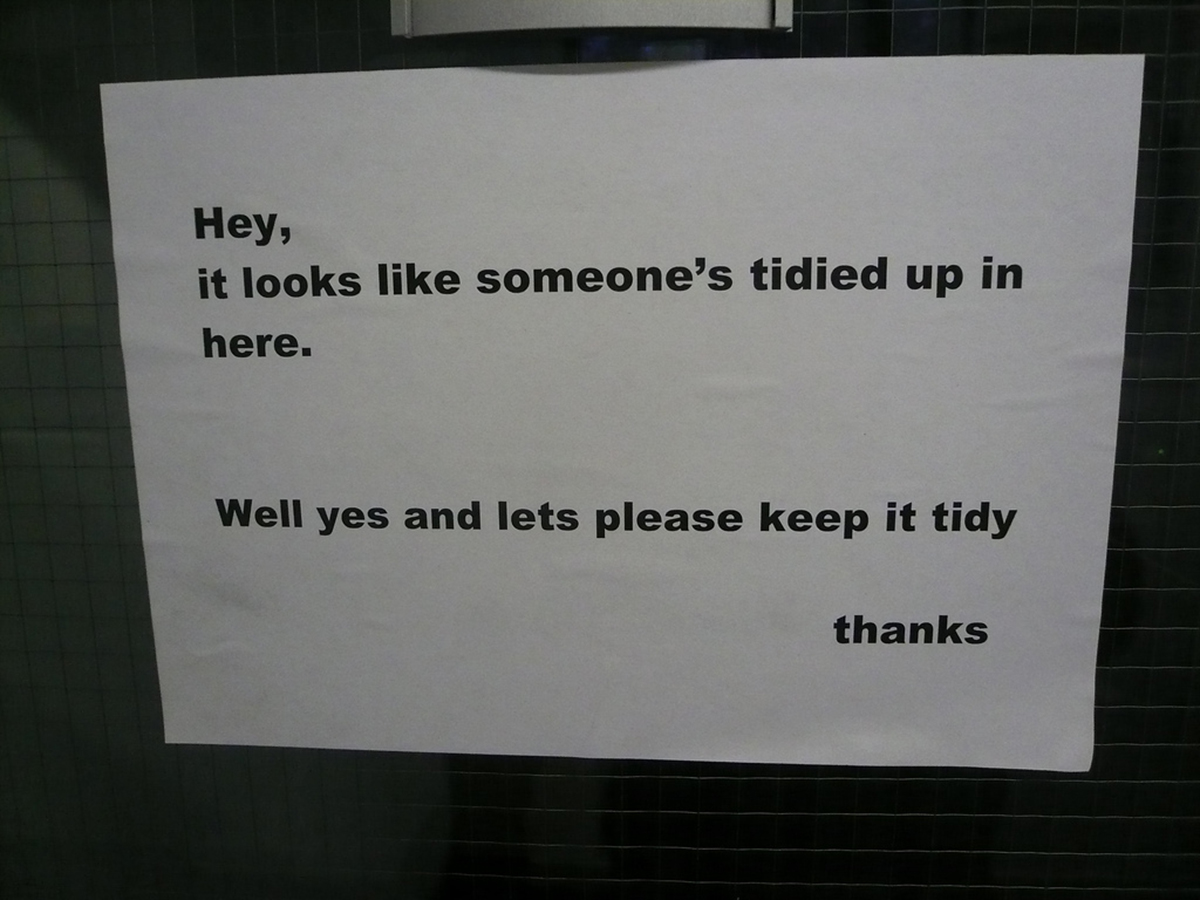There is, some people may be surprised to hear, such as thing as "Passive Aggressive Personality Disorder". It involves, the Diagnostic and Statistical Manual of Mental Disorders (DSM-IV) says, a "pervasive pattern of negativistic attitudes and passive resistance to demands for adequate performance in social and occupational situations".

We all know people who do not believe in solving problems by being honest and open, and who prefer to make their displeasure known in less direct ways. How can we make dealing with those people easier?
What Is Passive Aggression?
Passive aggression is, in short, behavior resulting from not expressing disagreement openly. Instead of tackling the problem head-on, people who turn to passive-aggressive behavior show their dissatisfaction in a myriad of indirect manners.
- The person may feel angry about something you did or decided to do, and believe you are aware of that fact. Their behavior may be designed to make you feel uncomfortable, to get revenge, or to get you to change course.
- The person may feel that they have no way to express their disagreement directly (because they are dealing with a boss or parent, for instance), and show their disagreement in other ways instead. Rather than being the result of a relationship in which the parties do not hold equal power, passive aggression may also simply be the result of of the person's desire to avoid open conflict. The result is similar in both cases.
- Passive aggressive behavior may also be unintentional. The person intended to cooperate with you fully, but their feelings of disagreement get in the way of accomplishing this successfully.
- The person may not actually be acting in a passive-aggressive way: their behavior towards you may be the result of a misunderstanding between you two.
In all of these cases, passive aggression can be expressed in a wide range of ways. Procrastinating, delivering a lower standard of work, ignoring requests, being uncommunicative ("the silent treatment"), being moody, and discussing your behavior and plans with others (gossiping, sometimes in the hope that you'll hear what's going on from others) are all ways in which passive aggression can manifest itself. The person may also withhold information, or communicate with others instead of you.
If what you experience as passive-aggressive behavior is the result of a misunderstanding or a relationship in which you have more authority, it's easier to pave the way towards constructive dialogue again.
Telling a person you hold authority over that they should feel free to voice their opinions and concerns is quite likely to be very productive. If you're a parent facing this situation with your child, telling them you won't be angry if they share their honest feelings is also a good idea.
See Also: Passive Aggressive Personality Disorder
If you think the passive-aggressive behavior is the result of a misunderstanding, saying you think you may not be understanding each other correctly and starting the conversation from scratch can yield results.
Stopping Passive Aggressive Behavior In Its Tracks
Acknowledge What's Going On
Recognizing the behavior as passive aggressive can be an excellent first step. Have you noticed some of the signs of passive-aggressive behavior? You know, the procrastination, silent treatment, sulkiness, sloppy work, and even gossip? Label the behavior: tell yourself that "this person is being passive aggressive".

This enables you to look at the behavior in context. That's important, because addressing the behavior itself is not going to help unless you can get to the bottom of why the person is behaving like that. That is your next step: if you aren't immediately sure why someone is being passive-aggressive, try to work it out. Ask others for help if you need to.
De-escalate The Situation
Because dealing with passive-aggressive behavior is particularly frustrating, reacting to its manifestations can be all too tempting. That's an unproductive reaction to conflict-avoiders, however, and can lead to escalation in those who seek it. De-escalating the situation is the way to go. There is a lot to be said for addressing the root cause of the behavior, and not the behavior itself. Some ways in which you can do that include:
- Creating regular opportunities for open communication, and encouraging the person to share their views and feelings.
- Stating that you noticed the behavior, and asking what is bothering the other person.
- Directly asking whether the behavior is caused by what you suspect the cause is.
Passive-aggressive people often really dislike being called out on their passive-aggressive behavior. They may deny their anger or frustration, and deny that their behavior is caused by an underlying problem. Be prepared for this. If your relationship with this person is such that you can simply ignore the behavior, or see a lot less of the the person, those can be viable options.
See Also: What to Do About Nosy (or Aggressive) Neighbors In The Nursing Home
What if the problem person is someone you work with? Trying to call them out on their behavior using the above suggestions is one thing you can try. Focusing on the problematic behavior itself is another option. If you are in a position of authority over such a person, simply stating that the behavior is not acceptable and needs to stop is also a possibility, and one that's probably inevitable. If you are equals or your boss is passive aggressive, seeking help from those higher up may prove to be productive in some cases. Coworkers who have been working with this person longer may also be able to offer valuable tips.
- Photo courtesy of gruntzooki via Flickr: www.flickr.com/photos/doctorow/1884527516
- Photo courtesy of Poldavo (Alex) via Flickr: www.flickr.com/photos/poldavo/562024560


Your thoughts on this